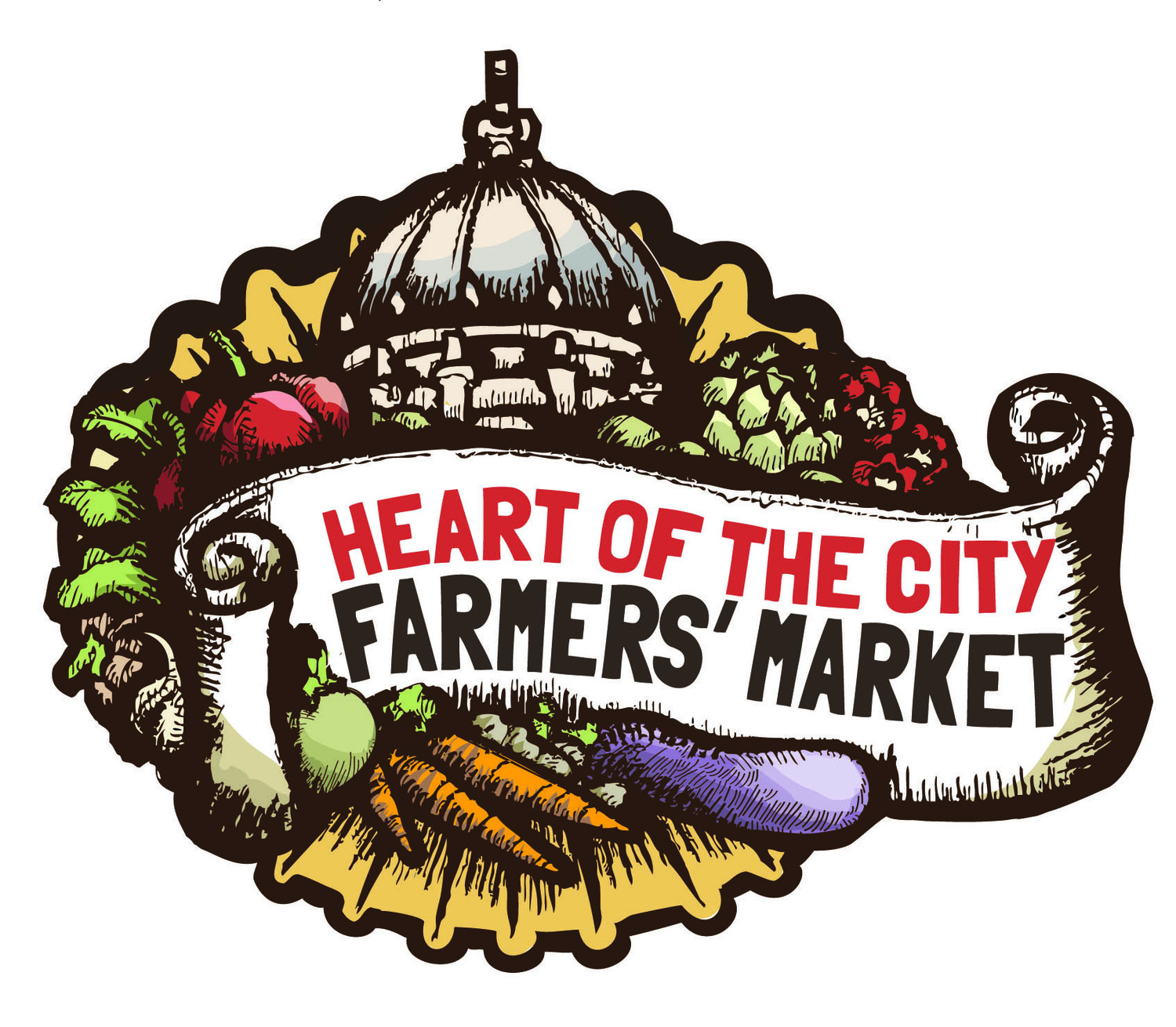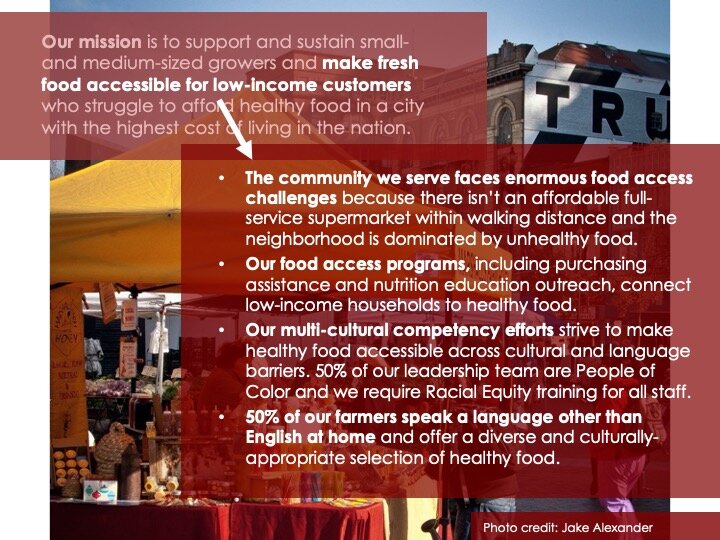Equity and access are at the foundation of our non-profit’s mission to support and sustain small family growers and address food insecurity in the Tenderloin and surrounding neighborhoods.
Heart of the City Farmers’ Market’s food access programs provided $1.5 million in free produce in the past 12 months to San Francisco’s most vulnerable low-income residents, bringing additional revenue to support struggling local family farms.
Our non-profit’s responsibility is to ensure equal access to the critical food resources we provide across racial, cultural, and language barriers as well as ensure all people are treated with respect at the market. In this way, we can help to address the systemic racism in our local food system.
Our responsibility is also to provide employees with the tools and training they need to recognize racism, bias, and power dynamics, then take steps to ensure equal access to resources. We require a 6-hour equity training for all employees to teach about systemic racism, implicit bias, multi-cultural competency, and how to be anti-racist.
Additionally, our responsibility is to help ensure equal access for farmers and vendors across racial, cultural, and language barriers to help their businesses thrive. Over 50% of our farmers speak English as a second language.
Heart of the City Farmers’ Market supports California Farmer Justice Collaborative and their response to the Farmer Equity Report that was recently published by the California Department of Food and Agriculture. Read CDFA’s Farmer Equity report.
California Farmer Justice Collaborative’s (CFJC) mission is to ensure that farmers of color are empowered to directly participate and effectively lead in building a fair food and farming system in California. They unite farmers, advocates, and other allies to challenge historic and ongoing racism and other forms of structural oppression in order to create the comprehensive change needed to build this system. In 2017, CFJC worked to pass the Farmer Equity Act, adding a definition of Socially Disadvantaged Farmer and Rancher to the California Food and Agriculture Code. Learn more about the legislation here.
In their response to CDFA’s Food Equity Report, CFJC recommends the following steps to the CDFA and others in positions of power within our local food system:
“Disappointingly, this report failed to capture the history of structural racism embedded in our food and farming system and lay out clear steps to authentically address that inequity…”
“We are committed to seeing the Department reverse the impacts of institutionalized racism in California food and agriculture... Our call to CDFA, legislators, and partners based on this report includes the following:
We call on CDFA to provide direct support to stakeholder organizations that help farm owners/operators of color get access to land, capital, and language-appropriate training in order to directly address the inequity illustrated in the demographics of farm owners/operators.
We call on CDFA to solicit input from stakeholder organizations that have a demonstrated record of advancing racial equity in agriculture to prioritize and make actionable the recommendations offered in this report.
We call on CDFA to increase internal staffing that focuses explicitly on advancing the mandates of the Farmer Equity Act in 2020 and beyond.
We call on our partners to hold CDFA accountable to the work of increasing its own capacity for implementing racial equity internally and externally by standing beside us and sharing this statement.”
For more information about the California Farmer Justice Collaborative and to read the collaborative's full response, visit farmerjustice.com.
We are grateful for the work of California Food Justice Collaborative and others to promote racial equity in farming and ensure we all remain focused on the learning and improvement process.
In the article White People Own 98 Percent of Rural Land, Young Black Farmers Want to Reclaim Their Share published on June 27, 2020, Mother Jones reported:
“Black people have largely been expelled from the US agricultural landscape. In 1920, nearly a million Black farmers worked on 41.4 million acres of land, making up a seventh of farm owners. Today, only about 49,000 of them remain, making up just 1.4 percent of the nation’s farm owners, and tending a scant 4.7 million acres—a nearly 90 percent loss.
“This didn’t happen by accident. Since Emancipation, Black farmers have had to fight for a share of this country’s fertile ground, due to a history of racist policies and land theft. But modern sustainable agriculture owes much to Black agriculturalists, explained Leah Penniman, co-director of Soul Fire Farm in upstate New York and author of Farming While Black, on a recent episode of Bite.”
Though over 50% of Heart of the City Farmers' Market farmers are people of color, we have not been successful in our efforts to recruit Black farm owners to sell with us. We will continue to make this a priority. Black Lives Matter and black farmers matter. We must all work to correct racial inequity in California’s local food system.


